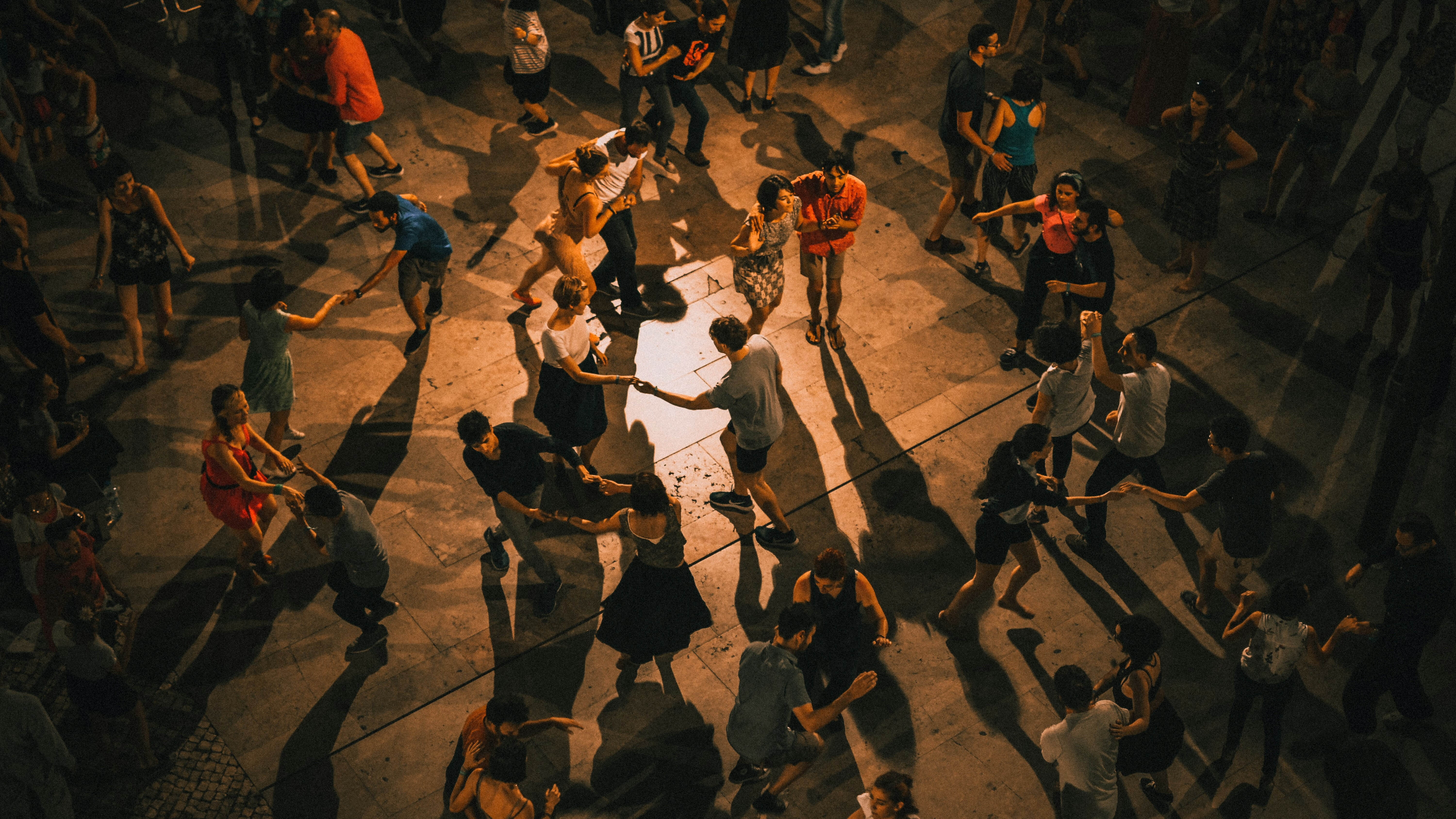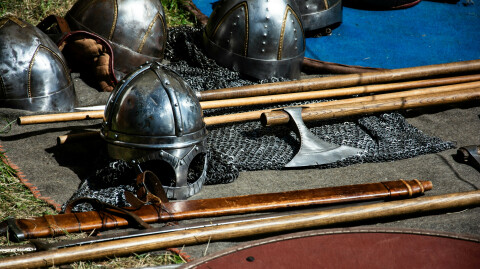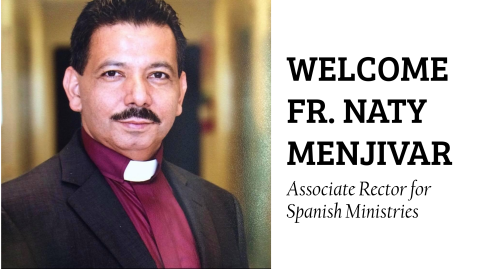“Now all the tax-collectors and sinners were coming near to listen to him. And the Pharisees and the scribes were grumbling… So he told them this parable: (When the prodigal returned) ‘They began to celebrate. Now his elder son was in the field; and when he came and approached the house, he heard music and dancing. He… asked what was going on… Then he became angry and refused to go in. His father… began to plead with him. But he answered… “Listen! For all these years I have been working like a slave for you, and I have never disobeyed your command; yet you have never given me even a young goat so that I might celebrate with my friends. But when this son of yours came back, who has devoured your property with prostitutes, you killed the fatted calf for him!” Then the father said to him, “Son, you are always with me, and all that is mine is yours. But we had to celebrate and rejoice, because this brother of yours was dead and has come to life; he was lost and has been found.’” Luke 15:1-3, 25-32.)
This is the second story of the two-part parable commonly known as The Prodigal Son. The first issue to notice is that the eldest son is not notified of the banquet and dance. The notifying of the eldest son would have been customary in a Palestinian context. “The father knows the older brother will be upset and, if notified, may even have tried to prevent the banquet. In any case, the parable has him appear when he does in order to heighten the comparison between the two sons.”1 The loud dancing would have been preceded by the banquet, but it was customary for people to continue the feast, even while the dancing was taking place. People would eat, drink, dance, go out to the courtyard, and then come back inside and party some more. The calf would not have been roasted on a spit, but “It would have been cut into sections and baked in bread ovens... The music signals to the village that there is something to eat.”2 The party could last until well past midnight with guests leaving and others arriving throughout the night.
The parable gives us clues that the relationship between the eldest son and the father may be somewhat problematic. “A son with a normal relationship to his family would enter the party immediately, eager to join in joy, whatever the source... The older son does not rush in as expected. He is unnaturally suspicious.”3 He calls a young boy and “kept asking” (imperfect voice in Greek) “What’s going on?” This is important because if the younger son had returned victorious and wealthy, the older son would not have been as offended. According to Palestinian custom, when a person returns to his village with great wealth, he would receive an honorable reception, which included banquets and dancing. Obviously, he learns that his brother has lost his fortune, “He has squandered it all with prostitutes!” He refuses to enter the party, which is a behavior against custom, “At such banquets the older son… is expected to move among the guests, offering compliments, making sure everyone has enough to eat, ordering the servants around and, in general, becoming a sort of major-domo of the feast.”4
The older son has a right to question his father’s behavior, but this must be done in private after the feast is over. In the meantime, he would have been expected to enter the party, hug his brother, and accept the congratulatory statements from the guests for the safe return of his brother. Instead, he exclaims, “You have never given me even a kid to celebrate with my friends!” In an honor-and-shame based culture, it would have been expected for the father to chastise his older son for this behavior. What we see instead, for the second time in this parable, is that the father comes to his son with love. He entreats his son to come in, reminds him of his love, affirms his right to everything, and invites him to celebrate. The father’s love for the older son is just as intense and profound as his love for the younger son. Unfortunately, we don’t see any gestures of repentance in the older son. In fact, the story ends quite dramatically with the father’s words, “But we had to celebrate and rejoice, because this brother of yours was dead and has come to life; he was lost and has been found.” Leaving the story here is a calculated risk for Jesus. The hearers would have wanted a resolution for the conflict between the father and the older son. Something like this, “And the older brother went into the feast and reconciled with his brother.” Or, perhaps, “And the father severely punished the older son for his disrespect and sent him away from his presence.” Or “And the younger brother came out and asked his older brother for forgiveness, and both brothers gave each other a kiss of shalom,” etc.
The older son remains lost in his anger, failing to fulfill socially expected hospitality behaviors. Perhaps he is one of the ninety-nine who feel they need no repentance. From a Middle-Eastern point of view, the following is the list of offenses the older brother commits in his interaction with the father: (1) He addresses him with no title. (2) He demonstrates the attitude and spirit of a slave, not a son. “I have slaved for you...” (3) He engages in a labor dispute in public, “I have worked, where is mine?” (4) He insults his father in public, yet he says, “I have never disobeyed your commandments.” (5) He accuses his father of favoritism, forgetting his father’s words, “Everything belongs to you.” (6) He has removed himself from the fellowship of the family, “This, your son!” (7) He believes that a party with his friends is as important as the recovery of a son who was as good as dead. (8) He insults his brother. “He has spent your living with harlots.”
The behaviors of the older son prevent the logical ending for this ballad. As in the other two parables, joy is the logical conclusion of finding what is lost (personal and communal joy.) In this parable we see joy at the finding of the son when the father meets him at the end of the village. Unfortunately, the parable does not end in joy, as there is no reconciliation between the brothers, or between the father and the older son. The older brother remains outside, angrily pouting over the perceived injustice of the celebration, even when the father assures him that his rights are fully protected. Sadly, the one who owns everything still expects more and fails to grant even the smallest morsel of compassion towards the lost.
“The parable engrosses the sensitive listener/reader. Not only the scribes and Pharisees, but each man and woman must decide what his or her response will be.”5 The Father leaves his home in both halves of the parable and walks in humiliation to find his sons. Both sons are lost, one in his behaviors and betrayal of the father, the other in his self-righteousness and anger. The parable then contains at least five significant theological themes. (1) Two basic types of sinful men who deal with their sin in two different ways: one repents and the other one pouts. (2) Two types of repentance: the lack of repentance of a man who thinks of himself as righteous (older son) and the repentance of a man who knows he is a sinner. (3) A unique display of grace: The father’s grace is freely offered to both, but there is a cost to the father’s honor and rights. This is a love that seeks and suffers in order to save. (4) Joy at finding the lost: There is a celebration in community at the restoration of the lost. Sadly, this joy is not achieved in the second part of the parable because the older brother refuses to join the dance. (5) Sonship: One son is restored from death and from servanthood. A second son insists on seeing himself as a servant.6
The prodigal's story is unique among the three parables told in Luke 15 because no one comes looking for the lost son. The shepherd looks for the lost sheep, the woman looks for the lost coin, but no one comes to look for the prodigal. This role would have fallen on the shoulders of the older son. It was his duty to leave home, search for his brother, return him home, and facilitate the reconciliation with the father. He is a selfish older brother, preoccupied with the letter of the Law and absolutely blind to its spirit. In this regard, the older brother represents the nation as a whole. They have been blessed in Scripture that they may be a blessing to the nations. Instead of blessing the nations, however, they have built walls of separation between themselves and the world. They have failed in their vocation and mission to bless the world.
Jesus, on the other hand, is the true older brother who fulfills the mission given by God to his people. He has come to seek the lost, die for sinners, and rescue those who are perishing (See John 3:16-17.) Jesus chooses to die on a cross to rescue those who are unable to save themselves. The point he is making to the Pharisees and scribes (and the Church) is that, like him, they are the older brothers, and it is their job to look for the lost. They are called to be the mediators and they must enter the party and celebrate with those who have been found. The “ninety-nine in no need of repentance” don’t really exist. They are as lost as the sheep, the coin, and the prodigal brothers. They are lost, even though they think they can save themselves through obedience of the Law. They have failed to realize that the letter of the Law does not have the power to save them. They must repent and accept the true older brother who was sent to restore them to a proper relationship with the father. As long as they believe they are in no need of repentance, they will remain forever lost.
You and I are also called to be the older brother. We must follow Jesus’ steps and seek for what is lost. This begins with an acknowledgement of our own lostness and with repentance for our own failures. Once we have been found, we must go into our world to befriend broken and lost sheep. This is our job, but it is a job we don’t do alone. Jesus, our true older brother, walks with us. With him in our lives all is possible.
Thanks for allowing me six weeks of theological geekiness.
May our Lord continue to bless you,
Fr. Roman+
1 Bailey, Kenneth. Poet and Peasant, 192.
2 Ibid, 193.
3 Ibid.
4 Ibid, 203.
5 Ibid.
6 Ibid, 204





